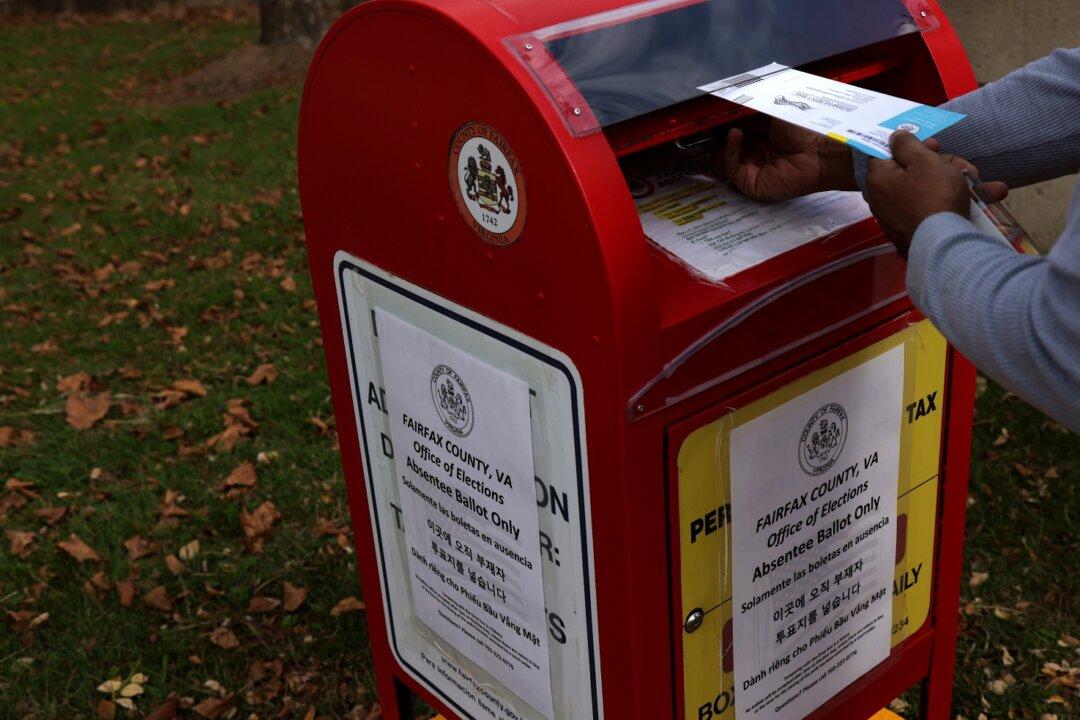The controversial practice of ballot harvesting, or allowing a third party to deliver a voter’s ballot to election officials, may drag out the Nov. 3 presidential election, experts say.
The hotly contested battleground states of Colorado (9 electoral votes), Florida (29), Georgia (16), Iowa (6), Maine (4), Minnesota (10), Texas (38), and Virginia (13)—which collectively account for 125 of the 270 votes in the Electoral College needed to elect the president—all allow a voter to designate someone else to submit their ballot, a practice known as ballot harvesting. California, which is not likely to be at play in the presidential election, also practices ballot harvesting, among other states.





